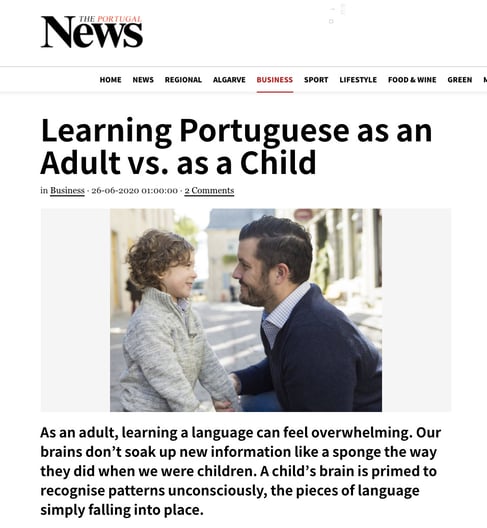 As an adult, learning a language can feel overwhelming. Our brains don’t soak up new information like a sponge the way they did when we were children. A child’s brain is primed to recognise patterns unconsciously, the pieces of language simply falling into place.
As an adult, learning a language can feel overwhelming. Our brains don’t soak up new information like a sponge the way they did when we were children. A child’s brain is primed to recognise patterns unconsciously, the pieces of language simply falling into place.
This doesn’t mean all hope is lost! It just means the approach for adults is a bit different.
The Adult Brain
Adults notice patterns too, but over time our brains become more efficient. They group the new in with the old and ignore or forget things to make space for the vast amount of information processed on a daily basis. The unfortunate side effect of this streamlining is that learning becomes more effortful and we need guidance to put the puzzle together.
Use Your Strengths as a Communicator
Luckily, adults have an important asset: years of life experience. All that wisdom we’ve acquired with age must count for something, right? Learning may not come as naturally, but adults are better at researching, analysing, and taking ownership of the learning process. We take notes when we come across something important and we ask questions or seek out related information when we’re challenged. We can adjust our focus and methods to fit our own individual strengths, weaknesses, and goals.
Adults need to navigate more complex layers of language to feel fluent, including the cultural aspects that dictate talking to others within a variety of contexts. We can benefit from our experience adapting to new situations, making use of what we know to improvise our way through a conversation. Children may be better “speakers” in a second language, but adults are better “communicators”.
Be Playful and Fearless
Children have a huge advantage when it comes to attitude: they are naturally curious and aren’t as worried about making fools of themselves! With age comes more social awareness, and less free time, so incorporating elements of exploration into language learning can be challenging. Adults may require a bit more structure and focus, but we should still take inspiration from the playful and fearless way children interact with the world and use it to develop a growth-oriented mindset.
It’s Not Too Late!
The next time you think it’s “too late” to learn Portuguese, remember to take advantage of your adult capacity to control and question the learning process. Ask yourself: What makes learning feel like play to you? How can you use your own skills and past experiences to set yourself up for success?

